How will Brussels react to Article 50 being triggered?
- Published
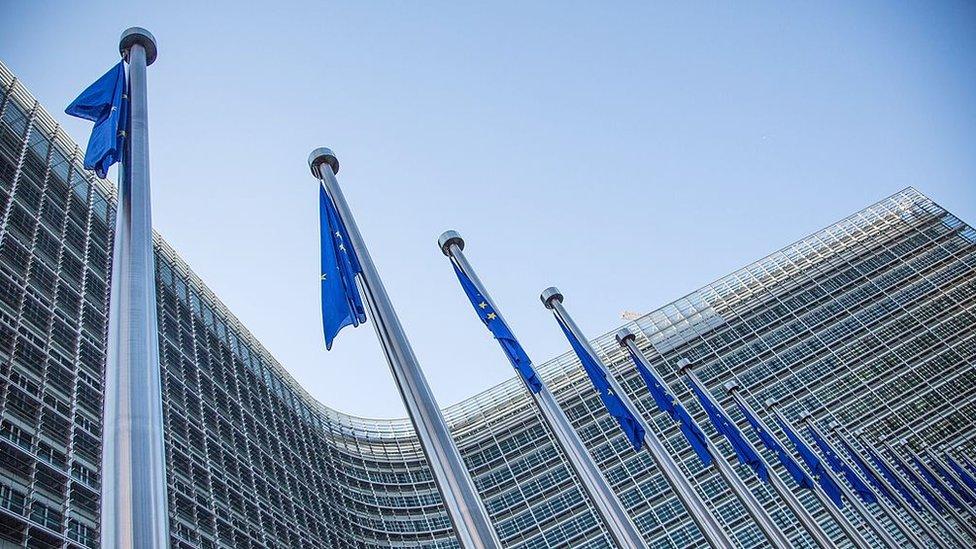
The first cliche of the Brexit process is about to bite the dust.
For months European officials have batted away questions about the financial and political implications of the UK's departure from the EU with the mantra "no negotiation without notification."
Well, now we are about to have notification, so at least we can look forward to not hearing that form of words again.
That doesn't mean of course that you should expect to see a long queue of Brussels insiders giving their views on the EU's red lines in the coming days.
Prepare instead for days, if not weeks, of consultation between the European Commission - which will take the lead in negotiations for Brussels - and the 27 "remainer" states, together with the European Council, which represents them.
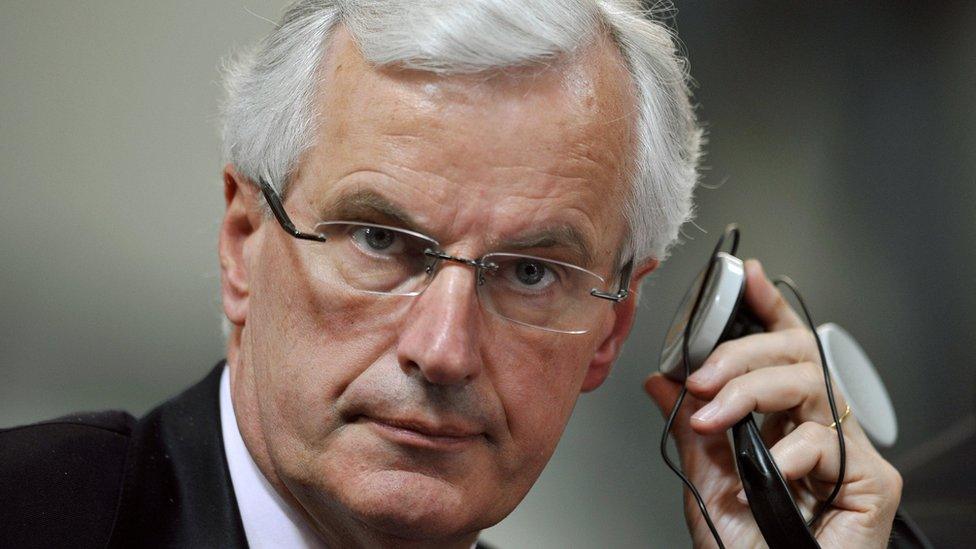
Frenchman Michel Barnier will lead the EU Commission's negotiating team
This is, of course, exactly the kind of long-winded, bureaucratic obscurantism that is the curse of European politics if you're a Brexiteer: or the kind of careful, consensual consultation we're going to miss if you're not.
The commission's chief negotiator is the former French cabinet minister Michel Barnier, who has been quietly preparing for this moment for several months, visiting the 27 capitals and hammering out common negotiating positions where possible.
Donald Tusk, President of the European Council, has been on the case too.
So Brussels has some sort of consultation document almost ready to go.
When the European side has seen the detail in the UK's Article 50 letter, it will, no doubt, wish to tweak that document.
The expectation in Brussels was always that the British letter of notification would be a fairly substantial document, rather than a one-line declaration of intent, so there might be quite a bit of tweaking to be done.
The revised document will then be dispatched to the 27 capitals for further consultation, and the result of all that consultation, in theory at least, will be an agreed EU negotiating position with agreed red lines.
The UK will see fairly quickly what the opening position of the Barnier team will be. And, of course, it's been working hard behind the scenes to try to calculate what the bottom line might be.
The initial sense of hurt and shock in Brussels has given way to a kind of resignation about Brexit.
Most MEPs you talk to still consider it an act of almost suicidal self-harm and feel that the UK has consciously uncoupled itself from one of modern history's most important drivers of peace and prosperity.
And you do hear irritation at some British attitudes. Foremost among the resentments is the idea that a large, rich, European power is walking away from financial commitments to poorer partners.
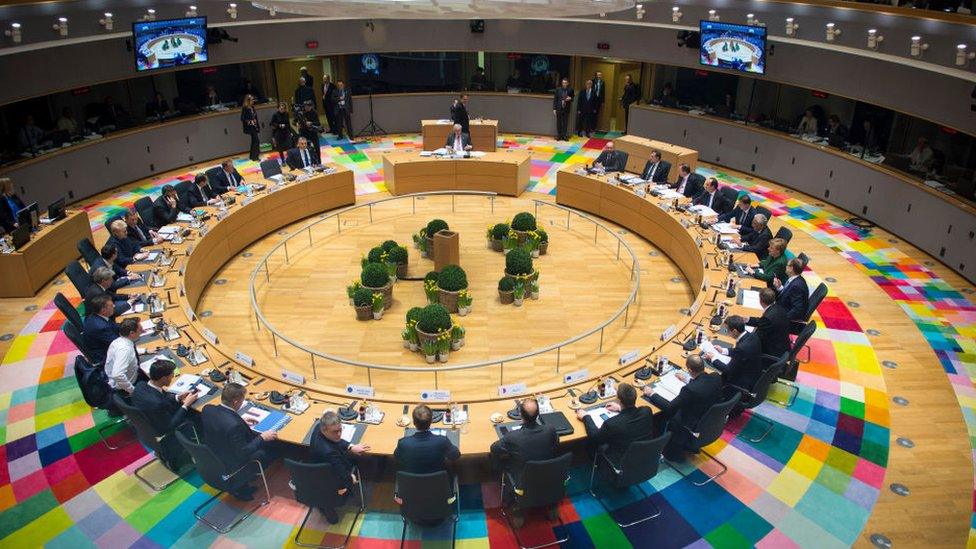
Individual EU nations have their own greatly differing aims for the Brexit negotiations
But at least one diplomat has pointed out that the UK championed the eastward expansion of the EU into the old Soviet empire and is now leaving the expanded union in part because of the pressure of migration from those new member states.
Still, the romantic notion persists that Brexit might one day be reversed, somehow: the EU Commission's President, Jean-Claude Juncker, has said publicly that he'd "like to see the British climbing back into the boat one day".
Lots of officials would agree with their British counterparts that it is now important to seek a deal that is good for both the EU and the UK. But make no mistake, the mission of Team Barnier is to clinch a deal that is good for the 27.
Those 27 states have wildly differing interests. The Baltic states see the UK as a European leader on security, Poland sees it as a vital source of overseas work and remittances and Spain has to balance the interests of its huge expatriate British population against a historic opportunity to make some diplomatic progress on Gibraltar.
And things might get very tough, very quickly.
The EU side wants to split the talks into two different strands: the terms of the "divorce" settlement and, only after that is settled, the terms of a future relationship.
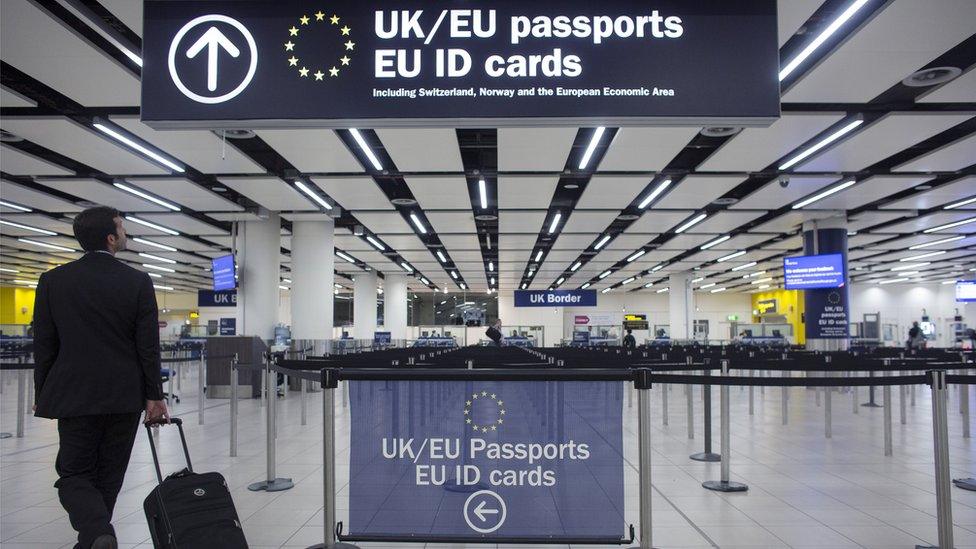
The status of migrants within the EU and the UK will be central to the talks
The UK clearly feels that it would be possible to take those two strands in parallel.
I wouldn't expect the two sides to fall out over process and timetabling, but nothing is impossible.
The most "do-able" deal, perhaps, would be on the rights of EU citizens in the UK and British passport holders sprinkled through the various members states (more than 500 in Estonia alone, apparently).
It's in no-one's interests to throw a shadow of uncertainty over so many lives - there are about a million Poles in the UK for example - and it's the closest Brexit will come to raising a genuine humanitarian issue.
Expect more problems over money, one of the reasons everyone keeps coming back to the divorce analogy.
The EU says it's made spending plans, to which the UK was a willing party, which stretch for several years into the future and that the UK has a responsibility, whether legal, moral or political, to carry on funding those commitments, perhaps until 2021.
And, beyond that, there are pension liabilities for current EU staff that stretch decades into the future.
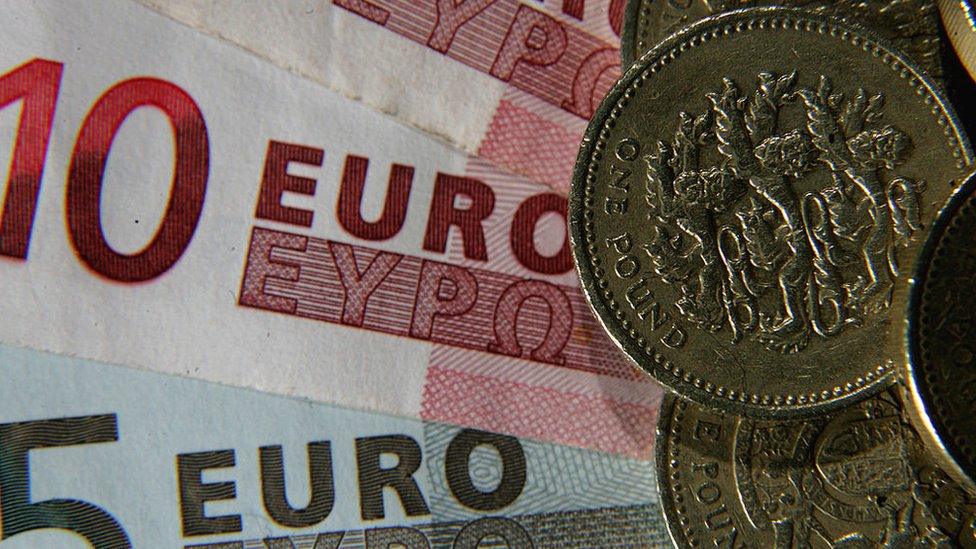
A large part of the "divorce" negotiations will concern money
British sources have told us that there's no legal basis on which the UK can be made to pay and, at the very least, if it's presented with a bill for 60bn euros (£52bn) it's going to require a line-by-line itemisation and not just a figure apparently plucked from the air.
The lesson of politics is that you can always do a deal about money, and so it's likely to prove again here.
But if there is an issue that's going to spark walkouts and breakdowns before a deal is struck, then this is probably it.
Much more complex will be the issue of future trade relationships, whether they're discussed in parallel with the divorce talks or have to wait until later.
A red line for many in the EU parliament is that the UK shouldn't have a deal which even comes close to being as good as being in the single market itself.
And the relationship with the EU's customs union threatens to be difficult too.
What if a Japanese-owned car maker is assembling vehicles in the UK using components made in Germany and then selling the vehicle in Belgium? Would tariffs be paid on the car parts as they left Germany, or when the completed vehicle left the UK? Or neither? Or both?
Will Dutch trawlers be allowed to catch halibut in UK territorial waters in the North Sea? Or Spanish boats take mackerel in the Irish Sea?
What about the Irish border, which is open because of the peace process: is it now to be closed because of the different customs regimes?
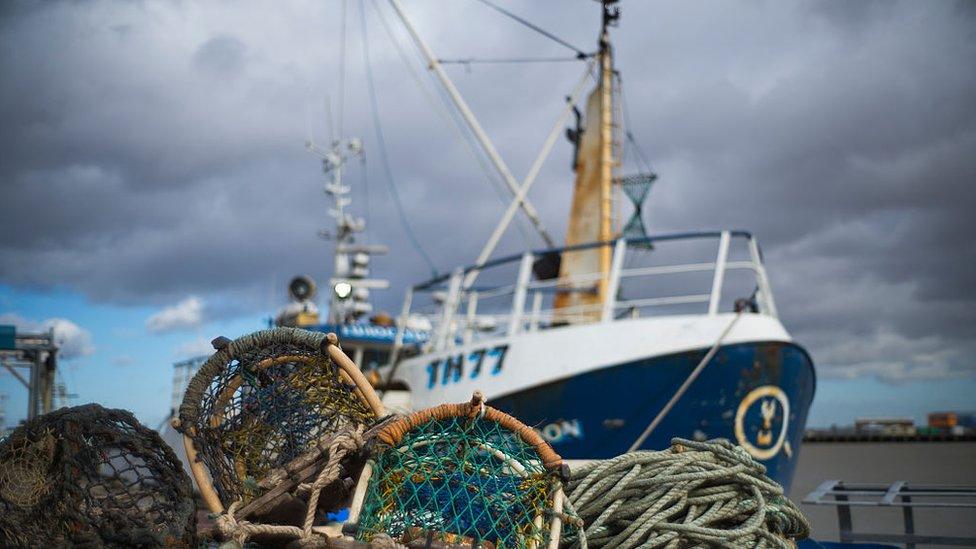
What kind of relationship will the UK have with the EU's single market and customs union following Brexit?
What about Scotland, especially if it ceases to be a region of the UK and becomes a unitary state half way through the talks?
All these difficulties and more have to be resolved.
And once Article 50 is triggered, it will be two years to the day before the UK is out of the European Union for good.
It would be possible, of course, for the two sides to agree an extension to that talks deadline, during which some kind of transitional arrangement with the UK could remain in force, under which things might be pretty much as they are now.
But the UK can't be sure that the EU would agree to such an extension when the alternative might be to have the British negotiating while over a barrel and against the clock.
For most of us, this will be the biggest and most important diplomatic negotiation of our lifetimes, and the outcome is shrouded in uncertainty.
We know when it will start, more or less, and when it will finish. Everything that happens in between will have the capacity to surprise and, every now and then, to shock.